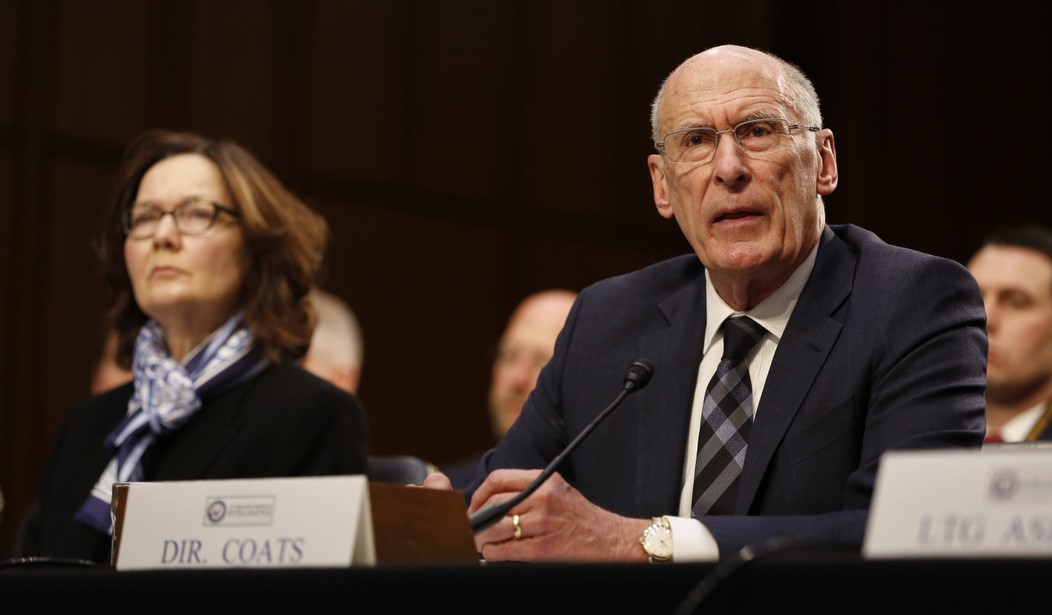WASHINGTON — Director of National Intelligence Dan Coats warned that celebration over the recapturing of most of the physical territory claimed by the Islamic State in Syria and Iraq “should not underestimate the ability of terrorist groups” to continue operations.
“Particularly ISIS and affiliated groups with al-Qaeda and other terrorist groups, that they are operating not simply on what takes place on the battlefield that gives them strength or weakness, but they are operating on the basis of a theocracy, a theology, an ideology that we will continue to see for perhaps years ahead in various places of the world,” Coats said at a hearing on worldwide threats before the Senate Intelligence Committee.
“So we see those that were engaged in Syria moving to other ungoverned spaces. We see the tentacles of ISIS and al-Qaeda tactics in different places in the world, North Africa, Philippines. We’ve just seen that take place, ISIS claiming credit for that,” he added. “So ISIS will continue to be a threat to the United States, and we’re going to have to continue, as [CIA] Director [Gina] Haspel said, to keep our eyes on that and our interest in the realization that this terrorism threat is going to continue for some time.”
Coats told lawmakers that “in addition to nuclear weapons, we have heightened concerns about chemical and biological weapons,” and the intelligence community assesses that North Korea, Russia, Syria, and ISIS “have all used chemical weapons over the past two years, which threatens international norms and may portend future use.”
“The threat from biological weapons has become more diverse as they can be employed in a variety of ways and their development is made easier by dual-use technologies,” he said.
Terrorism as a whole “remains a persistent threat and, in some ways, is positioned to increase in 2019.”
“The conflicts in Iraq and Syria have generated a large pool of skilled and battle-hardened fighters who remained dispersed throughout the region,” Coats said. “While ISIS is nearing territorial defeat in Iraq and Syria, the group has returned to its guerrilla warfare roots while continuing to plot attacks and direct its supporters worldwide. ISIS is intent on resurging and still commands thousands of fighters in Iraq and Syria. Meanwhile, al-Qaeda is showing signs of confidence as its leaders work to strengthen their networks and encourage attacks against Western interests. We saw this most recently in Kenya as Al-Shabaab attacked a hotel frequented by tourists and Westerners.”
Haspel told senators that it’s “accurate that ISIS has suffered significant leadership losses and near total loss of territorial control, but of course they’re still a dangerous… and they’re the largest Sunni terrorist group, and they still command thousands of fighters in Iraq and Syria.”
The CIA director said the Syrian Democratic Forces currently hold “hundreds of foreign fighters” captured during their ground battle against ISIS. “The IC as a whole is working very, very hard to make sure we know who those are, return people to their country of origin, and to make sure that even as ISIS, as we continue to make gains against them on the battlefield, that these foreign fighters do not — are not able to return to the fight,” she said.









Join the conversation as a VIP Member